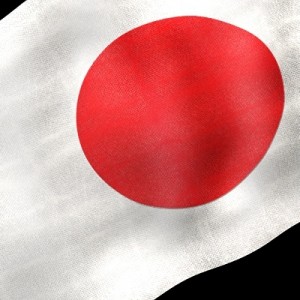Contrary to a press report over the weekend — and too credulously picked up by S&G — casino gambling is far from out of the woods in the Japanese Diet. True, it was voted out of committee in the lower house but it must pass two more votes before parliament adjourns  on December 14. JP Morgan analyst Joseph Greff estimates its chances of ultimate passage at only 50%. At this point, the legislation hasn’t even been sent to the corresponding upper-house committee, according to Deutsche Bank analyst Carlo Santarelli. He describes previous pro-casino initiatives by Prime Minister Shinzo Abe‘s administration as “delicate” (we agree) but not so this time around, with debate being limited and opposition parties balking at Abe’s fast pace, which also reportedly alienated some upper-house members of his own Liberal Democratic Party. He notes that “considerable discord remains amongst the parties.” There’s also the question of public opinion, which Santarelli describes as “rather unenthusiastic” toward casinos. A recent poll finds the concept bombing with the populace, 34% for and 57% against.
on December 14. JP Morgan analyst Joseph Greff estimates its chances of ultimate passage at only 50%. At this point, the legislation hasn’t even been sent to the corresponding upper-house committee, according to Deutsche Bank analyst Carlo Santarelli. He describes previous pro-casino initiatives by Prime Minister Shinzo Abe‘s administration as “delicate” (we agree) but not so this time around, with debate being limited and opposition parties balking at Abe’s fast pace, which also reportedly alienated some upper-house members of his own Liberal Democratic Party. He notes that “considerable discord remains amongst the parties.” There’s also the question of public opinion, which Santarelli describes as “rather unenthusiastic” toward casinos. A recent poll finds the concept bombing with the populace, 34% for and 57% against.
Putting all that aside, what is the best-case-scenario timeline? A task force would probably be formed to draft regulations, a process that could last a year. Sites among Japan‘s 47 prefectures would have to  be chosen — possibly with local votes required for approval — which is expected to add another year, putting requests for proposals from casino companies somewhere in late 2018. Santarelli projects that it could then take yet another year before the winners are chosen, meaning that shovels don’t go into the ground until 2019 at the earliest, with openings in 2023. (Remember when Big Gaming was trying to get this wrapped up in time to cash in on the 2020 Olympic Games?) How much will casinos pay in taxes? The corporate rate in Japan is 38% but Santarelli believes government “will be cognizant of the pitfalls of a high gaming tax rate and its impact on investment.”
be chosen — possibly with local votes required for approval — which is expected to add another year, putting requests for proposals from casino companies somewhere in late 2018. Santarelli projects that it could then take yet another year before the winners are chosen, meaning that shovels don’t go into the ground until 2019 at the earliest, with openings in 2023. (Remember when Big Gaming was trying to get this wrapped up in time to cash in on the 2020 Olympic Games?) How much will casinos pay in taxes? The corporate rate in Japan is 38% but Santarelli believes government “will be cognizant of the pitfalls of a high gaming tax rate and its impact on investment.”
Pegging the Japanese gambling market at $20 billion a year, Greff thinks that $10 billion megaresorts could still return as much as 15% on investment per year. As for the main contenders, he puts Las Vegas Sands slightly in front, given its Marina Bay Sands role model, with Wynn Resorts and MGM Resorts International at even money. Melco Crown Entertainment is at the back of the pack, given only a 25% chance of being selected. He thinks that casino companies will have to be minority partners with Japanese corporations — but we can all agree they’d do that gladly. (Well, Sheldon Adelson might not be glad to do it but he probably would. Maybe he’d join forces with Kazuo Okada just to spite Steve Wynn.) Frankly, casino companies have been clawing at the Japanese door for so long, they’d likely agree to pretty much anything that got them in.
* Having nothing better to do with its time, Bloomberg has catalogued the 10 most Instagram-intensive luxury hotels in the world and four of them are casino resorts, led by The Cosmopolitan of Las Vegas. At number 4, Wynn Las Vegas is hailed for its “Lake of Dreams” water show (I disagree with Bloomberg‘s assessment that it’s better than Bellagio‘s). Given some of the bloopers in the story’s research — Venetian Macao (#6) does not have a replica Eiffel Tower and Cirque du Soleil‘s O does not play at Aria (#7) — I’m taking this whole thing with a big grain of salt.

